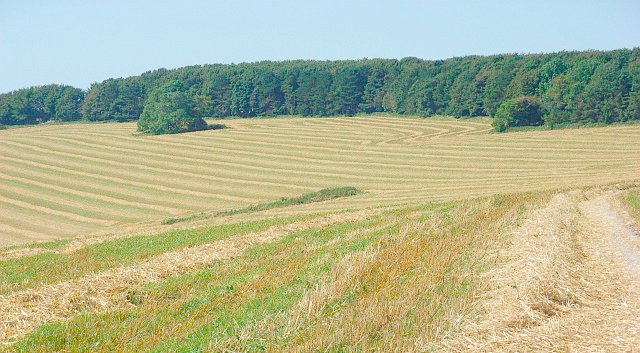
Britain’s population is growing and we’re facing a potential shortfall of two million hectares of land by 2030.
Here, Claire Bainbridge MRICS FAAV, Senior Rural Surveyor at George F White explains what impact this could have for farming businesses and the way that land is used in the future.
With a population expected to exceed 70 million by 2030, what impact will this have on our land-use?
Land in the UK will have to become more multifunctional – used to support not only increased food production but rising demand for energy, housing, flood alleviation and forestry.
Yields will need to increase, technology for energy production must advance and long term projects – such as forestry - will have to be implemented quickly.
The overriding impact though will be supply and demand of land and the subsequent value and use of it. Soils are at risk of becoming overworked and therefore less productive, whilst housing in the wrong place can cause greater flood risks so getting the right balance is crucial.
How do we ensure we are food-secure and self-sufficient?
As a country we are self-sufficient in a number of sectors such as cereals, milk and lamb, yet we rely on imports for fruit, vegetables and pig meat amongst others. We have the land type and ability to be food secure, however cheap imports and supermarket policy doesn’t currently allow UK businesses to develop to provide against food shortages.
However, the government has invested over £70 million in agricultural technologies that will help increase the efficiency of food production and help our food, farming and science industries grow economically whilst meeting the increasing global demand for food.
An understanding of the whole food supply chain is required, currently as production increases supply goes up and demand decreases. This reduces the farm gate price and puts pressure on those businesses who need to invest for the long term.
The demands of a nation have to also be balanced with global demands from developing countries such as China and India; as their economies and population expand, so does their desire for a western diet.
Their global buying power may overshadow the need for us to focus on self-sufficiency as a nation, and as supermarkets play price wars with home grown produce, it puts at risk the very businesses that can ensure self-sufficiency in the future.
How will land shortages affect farming businesses? Are they at risk of folding?
Farming businesses in the UK are affected by a number of factors: exchange rate, weather; government policy, CAP, supermarket pricing; all of which are out of their control and have a more immediate impact on whether they could fold or not.
Any increase in demand for land can raise the price of farmland which then only adds further financial pressure to farming businesses in the way of increased mortgage payments and rents.
But the difficulty faced by most of the UK’s farmers is that the price of farmland has very little correlation to the profitability of farming businesses and the farm gate price received for their product.
Overall, there are too many other factors that can cause increased volatility in the sector, not just land shortages.
What are your predictions for land-use in 2030?
UK agriculture has to be smarter and have the ability to look at the long term.
UK Farmers need to increase yields to not only feed a nation but stay competitive - and are poised to do both – however, at the same time they need to protect their main resources of soil and water. Previously, short term gains have protected neither.
I predict that prices for quality/productive land will continue to increase. At a farm-level view, grassland could be set to increase as arable farmers use it as a method of controlling black grass.
Renewable energy can work alongside food production, however production of biofuels is in direct competition with it; yet more economically viable as an energy source and a commodity. This needs to be set in context against government and CAP policy, which currently wants to take land out of production for environmental benefit and the other demands put on it.
Farming needs to have a key seat at the table that discusses and decides how these multiple demands on land are met in order to ensure food security. One only has to look at the actions of China, which is busy buying up farming businesses globally to ensure it can feed its nation long term.
Difficult and sometimes unpopular decisions will need to be taken if we are to meet all the demands whilst maintain a landscape that not only feeds and houses us, but provides an environment suited to all our demands.
